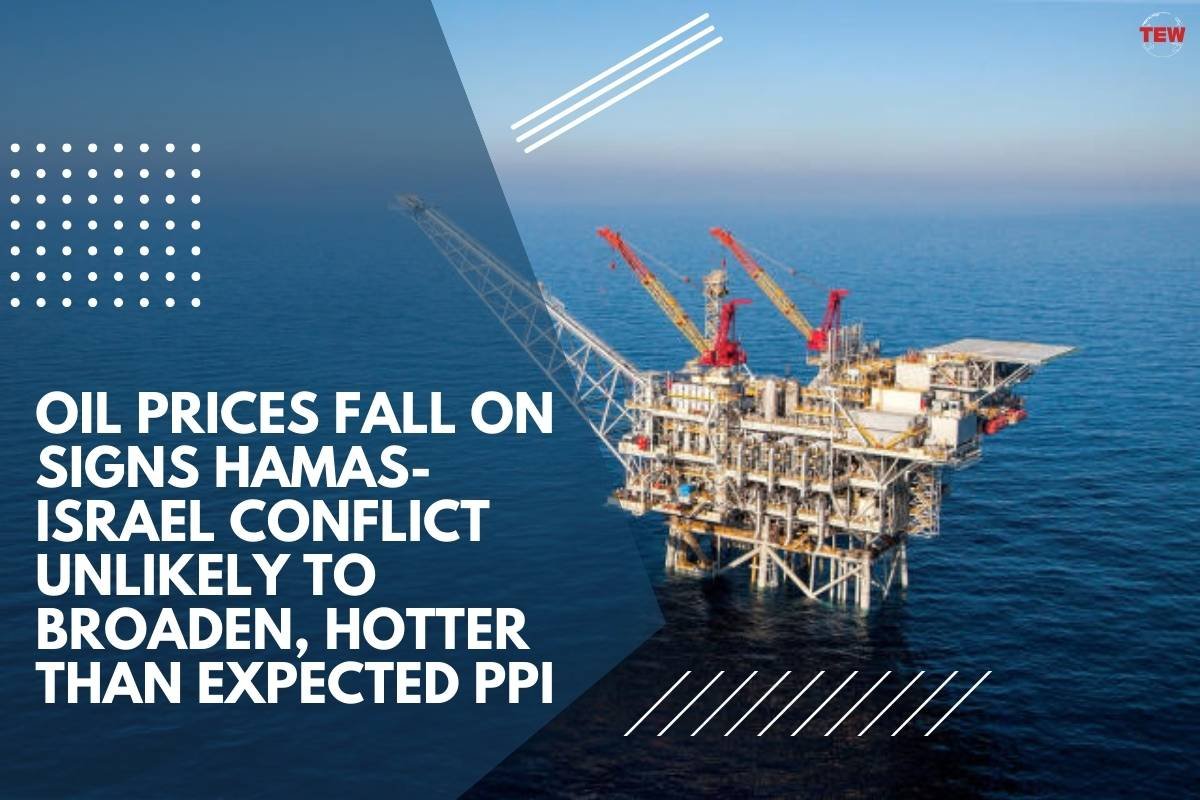Crude futures experienced a decline of over 2% in response to a Producer Price Index inflation print that exceeded expectations. Additionally, signs indicated that the conflict between Israel and Hamas might not escalate to involve other countries, particularly Iran.
By the mid-session on Wednesday, West Texas Intermediate (CL=F) was trading slightly above $84 per barrel, while Brent International (BZ=F) remained above $86 per barrel.
According to a New York Times report released on Wednesday morning, US intelligence suggests that Iranian leaders were caught off guard by the Hamas attack in Israel. This suggests that further sanctions from Western nations against Tehran or targeting Iran itself are less likely. On Monday, oil prices surged over 4% following a surprise attack on Israel by the Palestinian Islamist group Hamas, raising concerns about a broader conflict erupting in the Middle East region.
Conflict remains confined to Israel and Hamas
Prices stabilized by Tuesday, as there were no apparent indications that Iran, a long-time ally of Hamas, was involved in the attacks.
Wall Street analysts suggest that if the conflict remains confined to Israel and Hamas, it is unlikely to disrupt oil supplies.
Natasha Kaneva, Head of the Global Commodities Strategy Team at JPMorgan, stated in a note to clients on Tuesday, “While uncertainty is high, it is unlikely that the conflict between Israel and Hamas will disrupt oil supplies.”
The note further explained, “There has been no immediate impact on current global oil production, but what the market is noting is that supply could be disrupted if the US were to strictly enforce restrictions on Iranian oil exports or if disruptions spread to the Strait of Hormuz.”
Israel and Hamas war: Impact on oil prices
The closure of the Strait would result in a $20 to $30 per barrel increase
Approximately 17 million to 18 million barrels per day of crude oil and refined products pass through the Strait of Hormuz, which is adjacent to Iran.
Andy Lipow of Lipow Oil Associates, in a note to clients earlier in the week, warned that “the closure of the Strait would result in a $20 to $30 per barrel increase in the price of oil.” He also pointed out that Iran currently exports about 2 million barrels per day of crude, with a significant portion going to China. He added, “If Iran were to cease exporting oil, I believe the loss of 2 million barrels per day in the oil market would increase prices by $10 to $14 per barrel. If missiles were to be launched and Iranian oil facilities destroyed, the increase would be much higher, as the market would anticipate the next step to be the closure of the Strait of Hormuz.”





